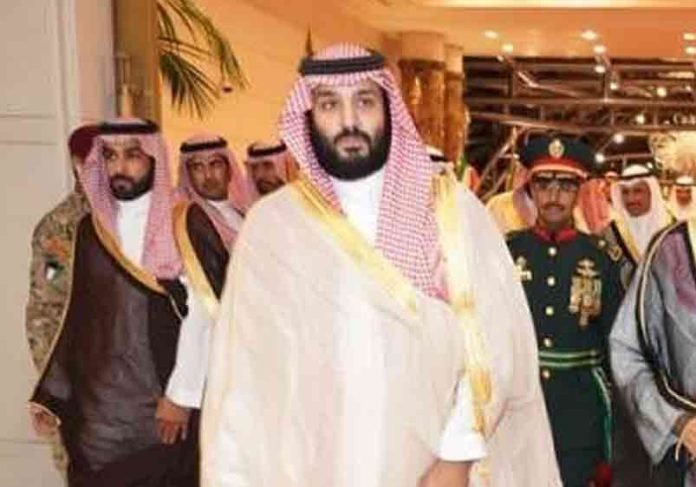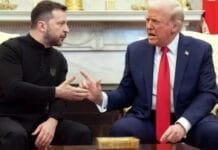The decision by the United States to halt foreign aid to Syria has triggered a significant geopolitical shift, prompting Arab nations and Western allies to convene in Paris to deliberate on Syria’s future. The international conference, scheduled for Thursday, will see key representatives from the Middle East and Western nations come together to strategize a roadmap for Syria’s stability.
This marks the third major conference on Syria following the fall of former President Bashar al-Assad, and the first since the administration of President Donald Trump took office. The meeting is expected to address critical issues, including the US’s uncertain commitment to the region and Syria’s urgent need for economic and humanitarian assistance.
Syria’s Interim Foreign Minister Joins the Paris Summit
Among the notable attendees will be Syria’s interim foreign minister, Asad al-Shibani, making his first diplomatic visit to Europe. Al-Shibani has expressed a strong desire to mend relations with Western nations and push for the lifting of economic sanctions, which have severely hindered Syria’s ability to rebuild.
The conference is expected to focus on three key issues:
- Humanitarian Assistance and Reconstruction: The staggering cost of rebuilding Syria is estimated to exceed $400 billion, yet aid from Western donors remains uncertain.
- Regional Cooperation: Strengthening diplomatic ties between Arab states and Western powers to ensure a stable transition of power.
- US Involvement in Syria’s Future: The impact of Washington’s withdrawal of aid and its implications for the broader Middle East.
US Aid Suspension Deepens Crisis in Syria
The abrupt halt of US foreign aid has sent shockwaves through Syria, exacerbating an already dire humanitarian crisis. The decision particularly affects northern Syria, where millions of displaced civilians reside in makeshift refugee camps. The United States Agency for International Development (USAID) has ceased funding key relief operations, jeopardizing food security, healthcare, and education programs.
Impact on Syrian Civilians
The Syrian civil war has left the nation’s economy in ruins, with millions of citizens facing extreme poverty and hunger. Prior to the aid cutoff, the US contributed millions in humanitarian aid, helping to alleviate suffering. However, with the suspension of this aid:
- Malnutrition rates have surged in displaced communities.
- Medical shortages threaten lives as hospitals struggle to function.
- Educational programs for displaced children are at risk of complete collapse.
Strategic Consequences for the Middle East
The withdrawal of US assistance raises concerns over Syria’s political and economic stability. Experts warn that without substantial foreign investment, the country could fall into deeper political fragmentation, potentially fueling further instability in the Middle East.
Additionally, Washington’s uncertain military role in Syria has left Arab nations contemplating alternative security arrangements. Many analysts speculate that Russia and Iran may seek to expand their influence in post-war Syria, filling the void left by the United States.
The Economic Burden: Syria Needs Billions for Reconstruction
Syria’s infrastructure lies in ruins after nearly 14 years of war. According to UN estimates, at least $250 billion was needed for post-war reconstruction back in 2017—a figure that has now risen to over $400 billion due to continued devastation and inflation.
Rebuilding Syria will require massive foreign investments, which remain uncertain as economic sanctions, corruption concerns, and ongoing conflicts deter international donors. The lifting of Western sanctions has become a major priority for the new Syrian leadership, yet political conditions set by Western governments remain a key obstacle.
Uncertainty Over US Military Presence in Syria
In addition to financial aid, questions remain over US military involvement in Syria. While former President Trump announced a withdrawal of American troops, uncertainty lingers over Washington’s commitment to stabilizing the region.
Key concerns include:
- The fate of US-backed Syrian Democratic Forces (SDF), which have played a vital role in countering ISIS.
- Iran’s growing military presence in Syria, posing a security threat to regional allies, including Israel and Saudi Arabia.
- The potential for Russia to expand its military and political influence in Syria.
The Paris Conference: A Pivotal Moment for Syria’s Future
The upcoming Paris conference serves as a critical moment in shaping Syria’s post-war future. With the US reducing its involvement, Arab nations and European allies are stepping up to fill the gap.
The primary objectives of the conference include:
- Establishing a roadmap for Syria’s political transition.
- Securing financial pledges from international donors.
- Discussing regional security strategies to maintain stability in the absence of US intervention.
As leaders gather in Paris, the stakes have never been higher. The decisions made at this conference will determine Syria’s path forward, influencing not just its domestic recovery but also the geopolitical balance in the Middle East.
















